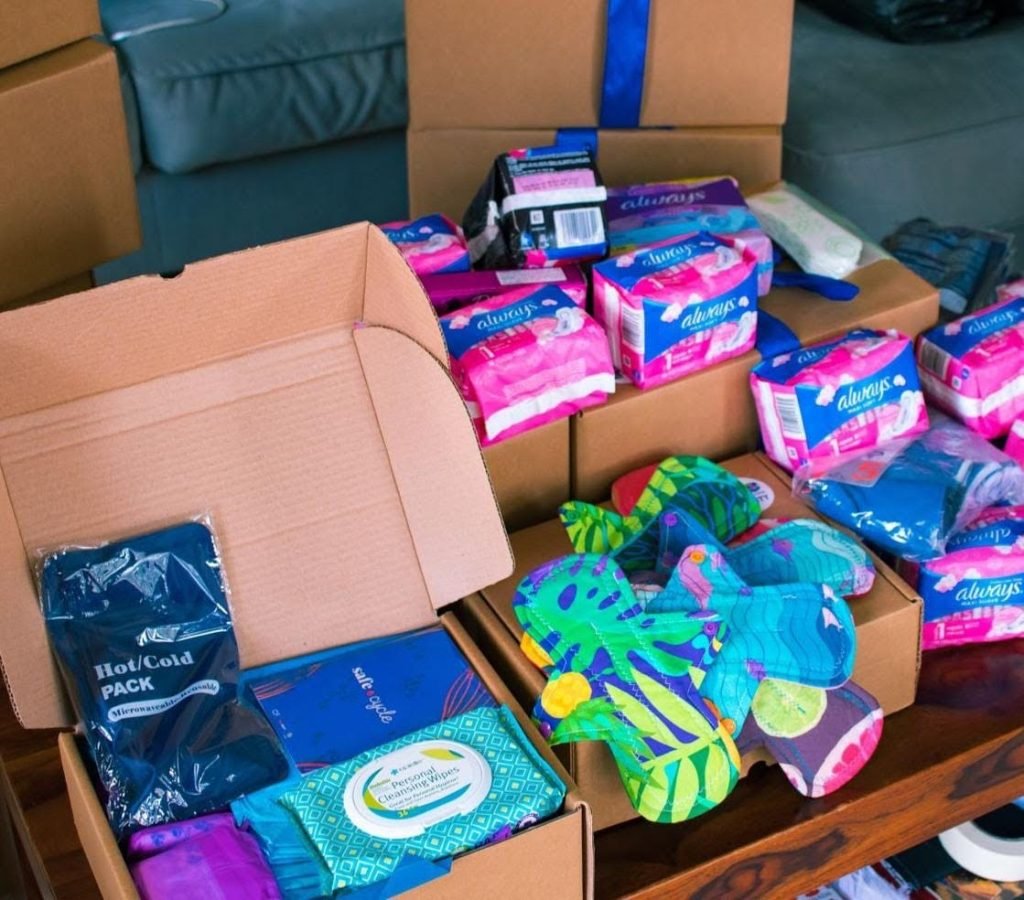Sustainability and Menstrual Products
A popular buzzword we often hear during environmental conversations is ‘Sustainability’. Sustainable development refers to development that meets the needs of the present without compromising the ability of future generations to meet their needs. In other words, considering how we can meet human needs without degrading and depleting our natural environment. Sustainability comprises three pillars; economic development, social development and environmental protection. There must be balance among these pillars in order to achieve a more sustainable future. While the majority of pressure to promote sustainability should be targeted towards large-scale global industries, there are small, individual choices we can make to encourage less waste. If you menstruate, you can begin by switching to sustainable period products.
The Covid-19 pandemic has not only made visible, but amplified a global ‘sanitary pad crisis’. There are several reports of menstruating persons in India, Fiji, Africa and other parts of the world experiencing period poverty due to lack of access and the increase in prices of disposable period products. Feminitt Caribbean, a local NGO, through their Safe Cycle campaign, has also highlighted this crisis in Trinidad and Tobago. In their recent survey of 500 persons, 76.2% indicated that they or someone they know cannot afford menstrual products for their cycle. Long term, sustainable menstrual products can help reduce this crisis. The sustainable menstruation movement promotes mindfulness of one’s body and health, and the negative effects of disposable sanitary products on the environment.
A major advantage of switching to sustainable periods products is that they can last anywhere between five to ten years with proper care. This reduces the amount of products needed per cycle, per year and can reduce the amount of menstrual waste that ends up in landfills and the waterways. One average, plastic disposable menstrual products generate over 200,000 tonnes of waste each year. Most of these products take on average, 500 years to decompose.
Some examples of sustainable menstrual products are period underwear, silicone menstrual cups and reusable cloth pads. These products do not contain harsh chemicals which reduces the chances of developing rashes and infections unlike many disposable menstrual products. In Trinidad, menstrual cups can be purchased from Harmony Eco Products and cloth pads from The Lily Pads Project. Investing in sustainable products is a healthier and cheaper alternative to disposables in the long run.
Pictured by Brainstorm Branding
But can everyone have a sustainable menstruation? Unfortunately, switching to sustainable menstrual products is in itself a privilege. While they are less expensive in the long run, these products can cost anywhere between $80 to $120TT per item. Additionally, an individual will require a minimum of two items when switching to a sustainable menstruation- which many persons cannot afford to invest in. In addition to the high price, these products require the person to have access to clean, running water and facilities to properly clean these items. This is simply not feasible for most people.
While sustainability is the goal, there are many practical issues, in addition to existing myths and taboos, that need resolving before the sustainable menstrual movement can fully gain momentum in Trinidad and Tobago. How do we bridge this gap? How do we make sustainable products affordable and accessible?
References
Borunda, Alejandra. 2019. "How tampons and pads became so unsustainable." National Geographic. September 6. Accessed June 2021. https://www.nationalgeographic.com/environment/article/how-tampons-pads-became-unsustainable-story-of-plastic.
Feminitt Caribbean. 2021. Safe Cycle Report: Ensuring a Safe Menstrual Cycle and Menstrual Equity . Trinidad and Tobago: Feminitt Caribbean.
Mehrotra, Ayesha. 2018. "Sustainable Menstruation-The Impact of Menstrual Products on the Environment." Medium. April 29. Accessed June 2021. https://medium.com/one-future/sustainable-menstruation-the-environmental-impact-of-menstrual-products-eba30e095cda.
Shalinee Bahadur is an MPhil candidate at the Institute for Gender and Development Studies (IGDS), UWI, St Augustine.

